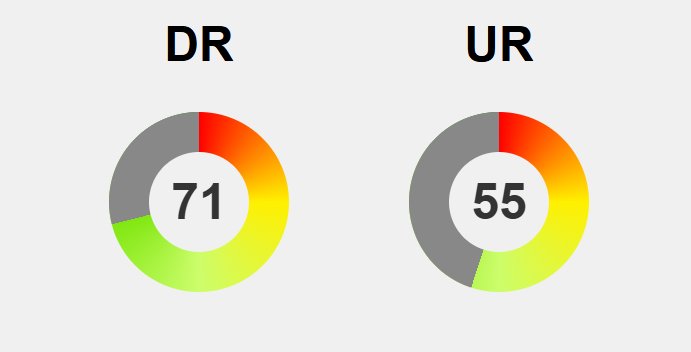Friedrich Nietzsche’s radical ideas continue to shake the foundations of modern thought, challenging us to reconsider notions of morality, identity, and human potential. His declaration that ‘God is dead’ signifies a profound cultural shift away from divine authority, urging individuals to craft their own values amidst chaos and uncertainty. Nietzsche’s concepts of the Übermensch, eternal recurrence, and the will to power serve as bold callings for self-overcoming, authenticity, and strength. But how do these provocative ideas shape our current world—from art and psychology to social movements and technological advances? As we navigate an era of rapid change, Nietzsche’s rebellious philosophy remains more relevant than ever, inspiring us to embrace chaos as a source of growth and to forge personal meaning in an unpredictable landscape. His relentless challenge to conformity pushes us toward a daring exploration of freedom, resilience, and self-creation—making Nietzsche a perennial voice in the quest for authentic existence.
Unveiling Nietzsche’s Revolutionary Philosophy in a World of Change
Friedrich Nietzsche’s ideas didn’t emerge in a vacuum; they were forged amid the upheaval of 19th-century Europe—a time marked by rapid industrial growth, political revolutions, and shifting social norms. Thinkers like Kant, Hegel, and Schopenhauer had already pushed philosophical boundaries around consciousness and morality, but Nietzsche aimed to go further. He rejected systematic theories in favor of a more personal, dynamic philosophy that prioritized individual experience and self-creation.
This era also saw a decline in the influence of religion, especially Christianity, which had long served as the moral backbone of Western society. Nietzsche famously declared that “God is dead,” signaling the collapse of absolute moral authority and the rise of secular, scientific explanations for human existence. This cultural shift created a space for new values—values that individuals could craft themselves, free from divine or societal constraints. Nietzsche’s call was for personal responsibility and authenticity in a world where old certainties no longer held sway.
Growing up in Germany, Nietzsche was immersed in a deeply religious environment. His father, a Lutheran pastor, died when he was young, leaving him under the care of a devout mother and sister. Despite this religious upbringing, Nietzsche’s own thinking quickly diverged. University studies exposed him to classical philosophy and German cultural debates, fueling a critical stance against inherited beliefs. To him, religious and societal norms were tools of control that suppressed human instinct and vitality, which he believed needed to be unleashed.
At the core of Nietzsche’s philosophy is a fierce critique of morality itself. He distinguished between “slave morality,” rooted in meekness and obedience, and “master morality,” which celebrates strength, vitality, and self-assertion. His famous declaration that “God is dead” wasn’t just atheism; it was a challenge to forge new values rooted in human strength and individual authenticity. Nietzsche urged us to reject traditional moral systems and instead craft our own standards—living boldly according to our inner drives.
Nietzsche’s ideas continue to resonate today because they challenge us to rethink who we are and how we live. His emphasis on self-overcoming, authenticity, and the rejection of external authority inspires countless thinkers, artists, and social movements. His philosophy isn’t just about rebellion for its own sake; it’s a call to actively shape our lives amid chaos, harnessing our inner strength to create meaning in a constantly changing world.
Contextual Roots: How 19th-Century Turmoil Shaped Nietzsche’s Thought
Friedrich Nietzsche’s ideas did not develop in isolation but emerged amidst a period of profound social and philosophical upheaval in 19th-century Europe. Rapid industrialization, political revolutions, and shifting social structures challenged long-held certainties about authority, morality, and human purpose. Philosophers like Kant, Hegel, and Schopenhauer had already pushed boundaries around consciousness and ethics, setting the stage for Nietzsche’s more personal and unconventional approach. He rejected systematic theories, favoring a philosophy rooted in individual experience, spontaneity, and self-overcoming.
This era also marked a decline in the influence of religion, particularly Christianity, which had long served as the moral foundation of Western civilization. Nietzsche’s declaration that “God is dead” captured this cultural shift—a recognition that traditional divine authority was waning, and secular, scientific explanations were taking its place. This upheaval created an environment where old values no longer held sway, prompting many to question inherited beliefs and seek new, human-centered foundations for morality and meaning.
Growing up in Germany, Nietzsche was immersed in a deeply religious environment. His father, a Lutheran pastor, died when he was very young, leaving him under the care of a devout mother and sister. Despite this religious upbringing, Nietzsche’s own thinking quickly diverged from orthodox beliefs. His university studies exposed him to classical philosophy and German cultural debates, which fueled his critical stance toward inherited norms. He saw religious and societal conventions as tools of control that stifled human instinct and vitality—forces he believed needed to be unleashed.
At the heart of Nietzsche’s evolving thought was a stark critique of morality itself. He distinguished between “slave morality,” rooted in meekness and obedience, and “master morality,” which celebrates strength, vitality, and self-assertion. His famous statement that “God is dead” was more than atheism; it was a call to forge new values based on human strength and authenticity. Nietzsche urged individuals to reject traditional moral systems and instead create their own standards—living boldly in harmony with their inner drives and instincts.
These ideas responded directly to the shifting cultural landscape of Nietzsche’s time. His rejection of external authority was a radical act of rebellion and a plea for personal liberation. By challenging the prevailing philosophical and social norms, Nietzsche opened the door to a new way of thinking—one centered on self-overcoming, strength, and the ongoing process of self-creation amid chaos. This historical context shaped his philosophy’s enduring relevance, emphasizing the importance of individual resilience in a world of constant change.
Core Ideas That Challenge and Inspire: The Übermensch, Eternal Recurrence, and Will to Power
Friedrich Nietzsche’s core ideas revolve around concepts that continue to challenge and inspire modern thought. One of his most famous notions is the Übermensch, or “Overman,” representing an individual who has transcended conventional morality to forge their own values. Instead of blindly following societal norms, the Übermensch lives authentically, embracing chaos and uncertainty as opportunities for growth. This figure embodies strength, creativity, and the relentless pursuit of self-overcoming, urging others to reach beyond their limitations and define their existence on their own terms.
Another foundational concept is the eternal recurrence—the idea that life repeats itself infinitely in a cyclical pattern. Nietzsche invites us to imagine living each moment as if we would relive it forever. This thought experiment encourages us to live consciously and intentionally, making choices that we would be proud to repeat eternally. It’s a call to craft a life filled with purpose and authenticity, affirming our values and desires in a way that withstands the test of endless repetition.
Central to Nietzsche’s philosophy is the will to power, which he saw as the fundamental drive behind human behavior. This isn’t merely about domination but about the innate desire to assert influence, grow, and shape one’s environment. The will to power explains how individuals seek meaning through self-assertion and growth, fueling personal development and cultural evolution. It pushes us to harness our inner strength, actively shaping our lives rather than submitting passively to external forces or societal expectations.
Together, these ideas form a radical reimagining of morality, identity, and human potential. Nietzsche challenged the notion that morality must be externally imposed, instead advocating for personal responsibility and self-creation. His concepts emphasize the importance of embracing chaos and uncertainty as sources of strength, inspiring a mindset rooted in resilience, authenticity, and continuous transformation. These insights continue to influence disciplines from psychology to politics, encouraging us to live boldly and redefine what it means to be truly free.
By exploring these profound ideas, Nietzsche invites us to continually reevaluate our approach to life and growth. For those interested in deepening their understanding of his philosophy, exploring comprehensive resources can be enlightening. You can learn more about Nietzsche’s teachings on the meaning of life and self-overcoming and how they remain relevant today.
Nietzsche’s Impact Today: Redefining Identity, Morality, and Society
Nietzsche’s ideas continue to shape our world in profound and often surprising ways. His call for individualism and self-creation resonates strongly in today’s culture, where challenging norms and forging authentic identities have become central themes. Artists and creatives frequently draw on Nietzschean concepts like chaos and authenticity, producing work that questions established standards and encourages genuine self-expression. This spirit of rebellion fuels innovation across fields, fostering environments where originality and personal voice are valued over conformity.
In psychology and self-help circles, Nietzsche’s emphasis on the will to power and self-overcoming has inspired approaches focused on resilience and personal growth. Therapies that promote understanding and harnessing inner drives echo his belief in active self-creation. His critique of traditional morality sparks ongoing debates about ethics, encouraging us to reevaluate inherited values and prioritize autonomous, self-defined ways of living. These ideas empower individuals to take responsibility for their paths, fostering a sense of agency in navigating modern life’s complexities.
Modern philosophy, especially existentialism and postmodernism, continues to draw from Nietzsche’s challenge to fixed truths and absolute standards. These perspectives emphasize subjective experience, embracing ambiguity and the fluidity of identity—ideas that align closely with his call for ongoing self-creation. As society becomes more diverse and interconnected, Nietzsche’s focus on forging personal meaning amid chaos offers a guiding framework for many seeking authenticity and purpose in a rapidly changing world.
In the realm of social and political change, Nietzsche’s advocacy for decentralization and personal sovereignty remains influential. Movements pushing for greater autonomy and self-determination often invoke his philosophy, envisioning societies where individuals shape their communities based on authentic values rather than external dictates. This emphasis on human creativity and self-expression promotes more flexible, innovative social structures that prioritize personal responsibility and collective resilience.
Culturally, Nietzsche’s celebration of chaos and uncertainty as sources of strength has fostered a more open, experimental approach to art, lifestyle, and identity. Many reject rigid categories, viewing life as a continuous process of reinvention and self-discovery. His ideas support a culture that values complexity, ambiguity, and ongoing transformation, encouraging individuals to embrace change as a pathway to deeper authenticity. This mindset helps cultivate a society where diversity and personal evolution are celebrated, keeping Nietzsche’s revolutionary spirit alive in the fabric of modern life.
Future Frontiers: How Nietzsche’s Ideas Will Continue to Shape Our World
Looking ahead, Nietzsche’s ideas are set to continue shaping how we understand ourselves and society in fresh and unexpected ways. As the world grows more interconnected and diverse, his emphasis on authenticity and self-overcoming will become even more relevant. People seeking to forge identities that resist easy labels and societal pressures can find inspiration in his call to embrace chaos as a source of strength. This ongoing shift toward personal freedom aligns with movements that celebrate individual expression and reject conformity.
Technological advances, especially in artificial intelligence and virtual realities, introduce new questions about what self-creation means in a digital age. Nietzsche’s notion of transforming chaos into strength can be reinterpreted to navigate these uncharted territories. As boundaries between human and machine blur, future thinkers might explore how authenticity and agency evolve in virtual environments and hybrid identities. This could push Nietzsche’s philosophy into new philosophical frontiers, challenging us to consider how self-identity adapts amid rapid technological change.
In ethics, Nietzsche’s challenge to inherited moral systems remains vital. As societal norms shift and new dilemmas emerge—around privacy, autonomy, and cultural diversity—his call for creating personal values offers a flexible framework for navigating complexity. His idea of self-creation encourages moral resilience, urging individuals to develop their own standards rather than rely on external dictates. This approach fosters a more nuanced, autonomous ethic suited to a world of constant flux.
Philosophically, movements like existentialism and postmodernism, which already echo Nietzsche’s skepticism of fixed truths, are likely to deepen their engagement with his work. These perspectives emphasize subjective experience and ongoing self-creation, resonating with current cultural trends that prioritize authenticity. As younger generations seek meaning in a fragmented world, Nietzsche’s focus on active self-overcoming provides a resilient blueprint for forging personal purpose and identity.
Culturally, the celebration of chaos and uncertainty as catalysts for growth could lead to a more experimental, open environment in art, literature, and lifestyle. Rejecting rigid categories, many now view life as a continuous process of reinvention and exploration. Nietzsche’s philosophy supports this mindset, encouraging us to embrace ambiguity and complexity as pathways to deeper authenticity. This cultural evolution fosters environments where diversity and ongoing transformation are valued as essential to human flourishing.
In the broader social and political landscape, the emphasis on decentralization and individual sovereignty rooted in Nietzsche’s thought may inspire future structures that prioritize human creativity and self-expression. Movements advocating for autonomy and self-determination could reshape governance models, emphasizing personal agency over collective control. Such shifts would promote more flexible, innovative communities built around authentic values, echoing Nietzsche’s rebellious spirit and his vision of a society where individuals actively shape their destinies.



